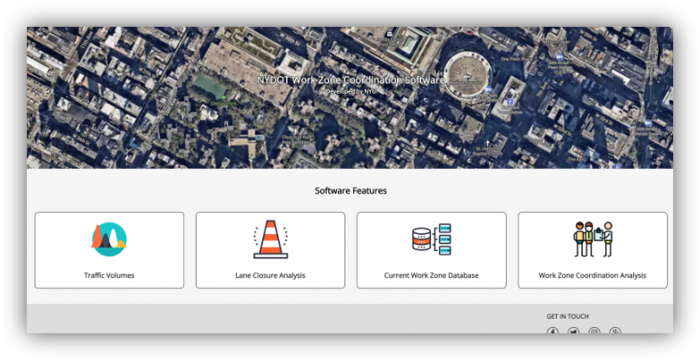Street-level Flooding Platform: Sensing and Data Sharing for Urban Accessibility and Resilience
Overview
Of the myriad climate change impacts, flooding is expected to have an outsized influence on public health and infrastructure. In New York City, for example, sea-level rise and high-intensity rainstorms (which convey large volumes of water to drains, leading to backups and overflows) have led to a dramatic increase in flood risk, particularly in low-lying and coastal neighborhoods. The physical presence of standing water on streets and sidewalks can impede mobility and restrict access to transportation. Additionally, urban floodwater contains a diverse array of contaminants, including industrial and household chemicals, fuels, and sewage. Access to real-time information on flooding can improve resiliency and efficiency by allowing residents to identify navigable transportation routes and make informed decisions to avoid exposure to floodwater contaminants. While there exist commercially available sensors that detect the presence of water inside homes, there is an unmet need for hyperlocal information on the presence and depth of street-level floodwater.
Research Objectives and Deliverables
The objective of this project is to develop a publicly- accessible platform that provides real-time flood information. The goals are to develop a flood sensor that overcomes common sensor challenges (including durability, connectivity, and power), as well as the digital infrastructure necessary to log, process, and present the data in combination with other publicly available information, such as rainfall data, 311 flooding complaints, and social media feeds. There are many potential applications of this proposal, including incorporation with the PIs’ ongoing research into potential exposure to sewage-associated pathogens following urban flood events.
The deliverables for this project include:
- The final prototype sensing solution, including connectivity hardware and edge sensors in numbers large enough to deploy with redundancy at three locations
- Technical documentation of sensor design, including instructions on building, deploying the sensors, with schematics for technology transfer
- Workshop curricula for technical and non-technical audiences around hardware and data aspects of the project
- Integration with the C2SMART Urban Data Observatory platform
- Datasets from pilot sensor deployment
- A public presentation/workshop at the conclusion of the project for dissemination to the Gowanus community and C2SMART consortia members
- Documentation of community outreach and roundtables
- Web interface and API to communicate flood data


Personnel
Project Details
| Principal Investigator | Elizabeth Henaff |
| Co-Principal Investigators | Andrea Silverman Tega Brain Junaid Ahmed Khan Charlie Mydlarz |
| Funding Source | Requested: $89,990 NYU Marron Institute grant to Henaff, Silverman, and Brain: $16,323 PI Khan salary (NYU CUSP): $13,192 Integrated Design and Media program (TCS, NYU Tandon): $15,770 |
| Total Project Cost | $135,275 ($89,990 requested + $45,285 cost-share) |
| USDOT Award # | 69A3551747124 |
| March 1, 2020 – February 28, 2021 | |
| Implementation of Research Outcomes | Research outcomes will be implemented as a set of sensors deployed in the Gowanus neighborhood (Brooklyn, NY), as well as the digital infrastructure to log, store, and display the data collected. All plans will be open-sourced and published in the form of tutorials. |
| Impacts/Benefits of Implementation | Development of a standardized open-source software and hardware platform that gives individuals and organizations the means of collecting and sharing flood data, which is beneficial both in the short term with respect to resident’s mobility, medium-term as a resource for advocacy and planning, and long term as an archive of the impacts of climate change. The benefits of open-source data and implementation are not only peer-review but also the possibility for technology re-use enabling it to be implemented by other researchers. Both software and data releases will be versioned and indexed by Zenodo to provide permanent DOI records for proper citation and tracking of usage. |









